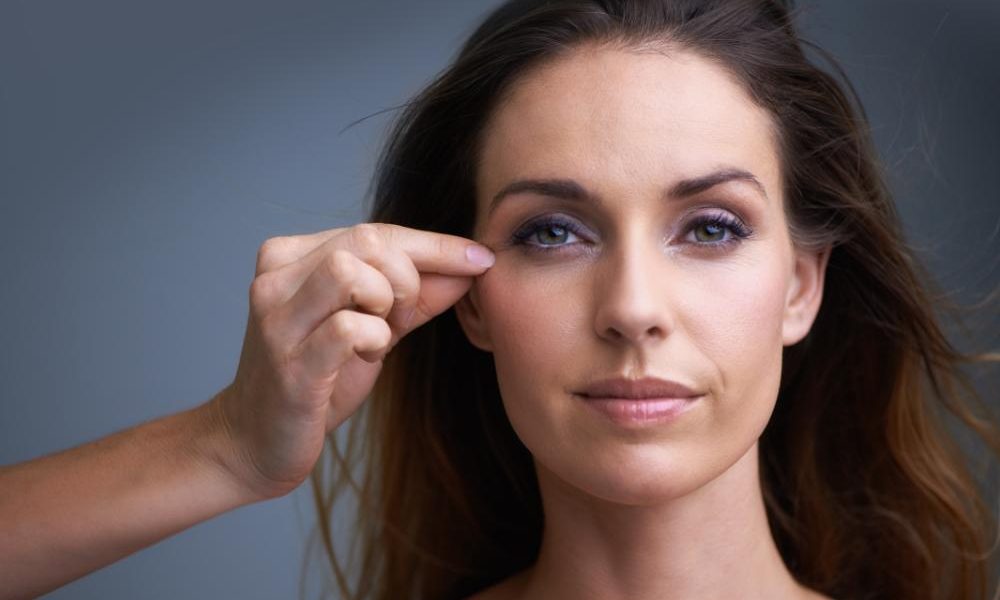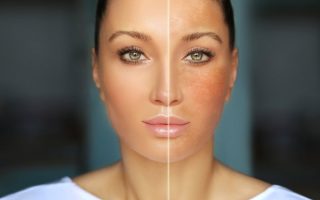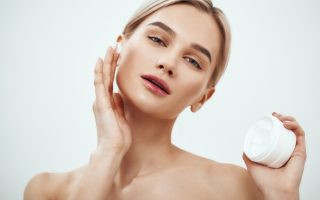Aging is a natural process, but that doesn’t mean we can’t take steps to maintain youthful, glowing skin. With the right skincare strategies, you can slow down the visible signs of aging and keep your skin looking its best. In this comprehensive guide, we’ll explore effective anti-aging techniques, backed by experts and scientific research, to help you develop an effective skincare routine.
1. Sun Protection: The Cornerstone of Anti-Aging
One of the most critical steps in any anti-aging skincare routine is protecting your skin from the sun. Dr. Dennis Gross, Dermatologist and Founder of Dr. Dennis Gross Skincare, emphasizes, “Sun protection is the number one anti-aging ingredient. It’s essential to use a broad-spectrum sunscreen with an SPF of 30 or higher every day, even when it’s cloudy.” UV rays can cause premature aging, leading to wrinkles, fine lines, and sunspots. Make sunscreen a non-negotiable part of your daily routine.
Quick Tip: Apply sunscreen as the last step in your morning skincare routine and reapply every two hours if you’re spending time outdoors.
2. Hydration is Key
Hydration plays a vital role in maintaining youthful skin. As we age, our skin tends to lose moisture, making it more prone to dryness and wrinkles. Dr. Barbara Sturm, Aesthetics Doctor, states, “Anti-aging is not just about preventing wrinkles. It’s about maintaining healthy, glowing skin at every age. This involves a comprehensive approach that includes proper cleansing, hydration, and protection.”
Quick Tip: Use a hydrating serum containing hyaluronic acid before applying your moisturizer to lock in moisture and keep your skin plump.
3. Incorporate Proven Ingredients
When it comes to anti-aging, not all ingredients are created equal. Paula Begoun, Founder of Paula’s Choice Skincare, advises, “Don’t fall for marketing hype. Look for skincare products with scientifically proven ingredients like retinoids, vitamin C, and peptides. These ingredients have been shown to improve skin texture, reduce wrinkles, and boost collagen production.”
Key Ingredients:
- Retinoids: These vitamin A derivatives are known to stimulate collagen production and accelerate cell turnover, reducing the appearance of fine lines and wrinkles.
- Vitamin C: An antioxidant that brightens the skin, reduces hyperpigmentation, and boosts collagen production.
- Peptides: Short chains of amino acids that help to strengthen the skin barrier and promote collagen production.
4. Manage Stress for Healthier Skin
Stress can have a significant impact on your skin’s health. Dr. Howard Murad, Dermatologist and Founder of Murad Skincare, highlights, “Stress can wreak havoc on your skin. Find ways to manage stress, such as yoga, meditation, or spending time in nature. This will not only benefit your overall health but also your skin’s appearance.”
Quick Tip: Incorporate stress-relieving activities into your daily routine, such as deep breathing exercises, regular physical activity, and spending time with loved ones.
5. Prioritize Your Diet
Your diet plays a crucial role in your skin’s health. Dr. Whitney Bowe, Dermatologist, says, “Your gut health plays a crucial role in your skin’s health. Eating a balanced diet rich in fruits, vegetables, and whole grains can help to improve your skin’s appearance and reduce signs of aging.”
Quick Tip: Incorporate foods rich in antioxidants, vitamins, and minerals, such as berries, leafy greens, nuts, and seeds, into your diet to support healthy, youthful skin.
6. Regular Facials for Skin Maintenance
Regular facials can help maintain your skin’s health and youthfulness. Shani Darden, Celebrity Esthetician, explains, “Regular facials can help to maintain your skin’s health and youthfulness. They can also address specific concerns like acne, hyperpigmentation, and fine lines.”
Quick Tip: Schedule a professional facial every 4-6 weeks or try at-home facial treatments to keep your skin in top condition.
7. Consistent Skincare Routine
Consistency is key when it comes to anti-aging skincare. Hyram Yarbro, Skincare Specialist, reminds us, “Busy doesn’t mean you have to sacrifice your skin. Find a simple routine that works for you and stick to it. Consistency is key, even if it’s just a few minutes a day.”
Quick Tip: Develop a morning and evening skincare routine that includes cleansing, treating, moisturizing, and protecting your skin.
Personal Anecdote: My Anti-Aging Journey
As someone who started noticing fine lines in my early 30s, I decided to take my skincare routine seriously. Incorporating a few key products and making some lifestyle changes have made a significant difference in my skin’s appearance. I start my day with a gentle cleanser, followed by a vitamin C serum, moisturizer with SPF, and a good sunscreen. In the evening, I use a retinoid and a hydrating night cream. These small changes, combined with regular exercise and a balanced diet, have helped my skin look healthier and more youthful.
Scientific Support for Anti-Aging Strategies
The effectiveness of these anti-aging strategies is supported by scientific research. A comprehensive review published in The Journal of Clinical and Aesthetic Dermatology explores the various factors that contribute to skin aging, including intrinsic (genetic) and extrinsic (environmental) factors. It also discusses the latest advancements in anti-aging skincare treatments and interventions.
Another study published in Dermatoendocrinology investigates the link between nutrition and skin health. The study highlights the importance of a balanced diet rich in antioxidants, vitamins, and minerals for maintaining youthful skin. These findings underscore the significance of a holistic approach to skincare that includes diet, lifestyle, and proper skincare products.
Tailoring Your Anti-Aging Routine
Everyone’s skin is unique, and it’s essential to tailor your anti-aging routine to meet your specific needs. Here are some additional tips for different skin types:
For Dry Skin:
- Cleanser: Use a hydrating cream cleanser.
- Serum: Apply a serum with hyaluronic acid and glycerin.
- Moisturizer: Choose a rich, emollient moisturizer.
- Extra Care: Incorporate facial oils to lock in moisture.
Oily Skin:
- Cleanser: Use a gentle foaming cleanser.
- Serum: Apply a lightweight, oil-free serum with niacinamide.
- Moisturizer: Choose a gel-based moisturizer.
- Extra Care: Use clay masks to control excess oil.
For Combination Skin:
- Cleanser: Use a balanced cleanser that addresses both dry and oily areas.
- Serum: Apply a serum that hydrates and balances the skin.
- Moisturizer: Choose a lightweight moisturizer for the T-zone and a richer one for dry areas.
- Extra Care: Use targeted treatments for specific concerns like acne or dryness.
Sensitive Skin:
- Cleanser: Use a fragrance-free, gentle cleanser.
- Serum: Apply a serum with calming ingredients like chamomile or aloe vera.
- Moisturizer: Choose a fragrance-free, hypoallergenic moisturizer.
- Extra Care: Avoid harsh exfoliants and opt for gentle, chemical exfoliants like lactic acid.
Conclusion
Creating an effective anti-aging skincare routine doesn’t have to be complicated or time-consuming. By incorporating proven strategies and products, you can maintain youthful, glowing skin at any age. Remember to protect your skin from the sun, stay hydrated, use scientifically backed ingredients, manage stress, prioritize your diet, and be consistent with your routine. As Dr. Barbara Sturm reminds us, “Anti-aging is not just about preventing wrinkles. It’s about maintaining healthy, glowing skin at every age.”
By following these tips and incorporating the expert advice and scientific research mentioned above, you can develop a comprehensive anti-aging skincare routine that works for you. Embrace the journey to youthful, radiant skin and enjoy the confidence that comes with it.




